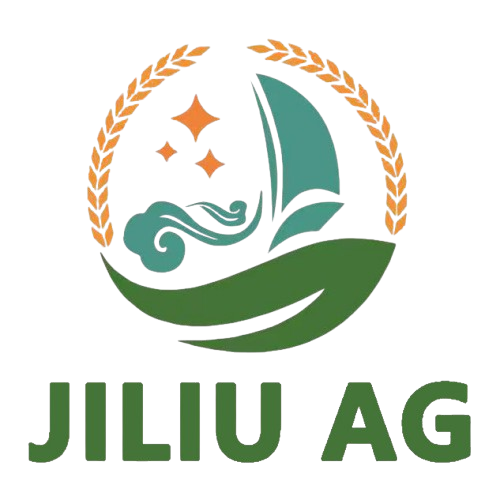Leveraging Bulk Carrot Sourcing to Enhance Global Retail Operations
Bulk carrot sourcing is a vital strategy for global retail enterprises looking to streamline their supply chains, reduce costs, and meet the growing demand for fresh produce. Carrots, as a highly versatile and in-demand vegetable, play a significant role in the global food supply chain. Sourcing carrots in bulk offers many advantages, particularly for retail enterprises that need to maintain consistency in quality, availability, and cost-effectiveness. This article will explore how bulk carrot sourcing can support the operations of global retail businesses, contributing to improved efficiency and customer satisfaction.
The Strategic Importance of Bulk Carrot Sourcing for Retail Enterprises
Sourcing carrots in bulk offers retail enterprises the opportunity to secure a stable supply of high-quality produce at a competitive price. Carrots are an essential part of the global food supply, and they are used in various culinary applications, from raw consumption to processed food products. By sourcing bulk carrots, retail businesses can ensure a consistent supply to meet consumer demand while also benefiting from economies of scale.
For global retail enterprises, the ability to source carrots in bulk not only enhances operational efficiency but also creates opportunities for long-term supplier relationships. These relationships can lead to more favorable pricing, increased product consistency, and better logistical coordination. For businesses looking to scale their operations, bulk carrot sourcing becomes a strategic component of their supply chain management, helping them to meet the growing demand across different regions.

Key Benefits of Bulk Carrot Sourcing for Retail Enterprises
Cost-Effectiveness and Economies of Scale
One of the primary benefits of bulk carrot sourcing is cost savings. By purchasing carrots in larger quantities, retail enterprises can benefit from economies of scale, reducing the per-unit cost. This reduction in cost per unit allows businesses to offer competitive pricing to consumers while maintaining healthy profit margins.
Bulk sourcing also enables better control over the supply chain. Retailers can avoid price fluctuations that often occur with smaller orders or seasonal variations in supply. This stability in pricing helps businesses plan their budgets more effectively and can be especially important when working with a diverse range of suppliers across global markets.
Consistency in Supply and Quality
For global retail enterprises, maintaining consistency in both supply and quality is crucial. Bulk sourcing guarantees that a retailer can obtain carrots in large quantities, ensuring that shelves are stocked regularly and customers’ expectations are met. Additionally, by working with established suppliers, businesses can achieve a consistent level of product quality, reducing the risk of spoilage and waste.
Carrots, being perishable items, require careful handling and transportation. Bulk sourcing provides retailers with the opportunity to establish standardized processes with their suppliers, ensuring that products are consistently delivered in good condition. This minimizes disruptions in the supply chain and ensures that customers can rely on a steady supply of fresh produce.
Logistics and Supply Chain Optimization Through Bulk Sourcing
Streamlined Distribution and Inventory Management
Bulk carrot sourcing can significantly streamline logistics and inventory management for global retail enterprises. By purchasing carrots in bulk, retailers can minimize the frequency of deliveries, reducing transportation costs and simplifying warehouse operations. Fewer shipments mean less time spent managing inventory, and more efficient storage solutions can be implemented, such as dedicated storage for bulk items.
Moreover, retailers can adopt advanced inventory management systems that are designed for bulk goods. These systems enable businesses to track large volumes of products, monitor shelf life, and optimize stock levels, reducing the chances of stockouts or overstocking. This data-driven approach to inventory management allows businesses to plan better, forecast demand, and avoid excess waste due to spoilage.
Efficient Transport and Global Supply Chains
Global retail businesses often require a complex and efficient transportation network to move bulk products across various regions. Bulk carrot sourcing allows businesses to work with trusted suppliers who understand the intricacies of international shipping and customs regulations. By securing long-term partnerships with these suppliers, retail enterprises can benefit from more predictable delivery times and reliable shipping practices.
Furthermore, the efficiency of bulk carrot sourcing minimizes the environmental impact of transportation. Fewer shipments translate to reduced carbon emissions and a smaller carbon footprint, which aligns with the growing demand for sustainability in the retail sector. Retailers that prioritize sustainable sourcing practices can enhance their brand reputation while contributing to global environmental efforts.
Enhancing Customer Experience and Brand Loyalty
Meeting Consumer Demand for Fresh and Healthy Produce
As consumers become more health-conscious, the demand for fresh, nutritious produce like carrots continues to rise. Retail enterprises that focus on sourcing bulk carrots are well-positioned to meet this demand, ensuring that they can offer fresh vegetables to their customers at competitive prices. By providing consistent access to high-quality carrots, retailers can attract and retain customers who value freshness and nutritional value in their food choices.
Bulk carrot sourcing also allows retailers to offer a wider variety of carrot-based products, such as organic, baby carrots, or pre-cut options. By diversifying their carrot offerings, retailers can cater to different customer preferences and increase their product range, which enhances the overall shopping experience and boosts customer satisfaction.
Building Customer Trust with Consistent Product Availability
One of the key factors in retaining customer loyalty is the ability to offer consistent product availability. When retailers source carrots in bulk, they can ensure that there is always enough stock to meet customer demand. This reduces the likelihood of out-of-stock situations and ensures that customers can rely on the retailer for their fresh produce needs.
Customers are more likely to trust and return to retailers that consistently provide high-quality products. By sourcing bulk carrots, retailers can meet consumer expectations and build a loyal customer base that values consistency, quality, and convenience.
Financial Considerations and Risk Management
Reducing Financial Risks in the Supply Chain
One of the challenges in sourcing perishable goods like carrots is managing the risks associated with fluctuations in price, supply, and quality. Bulk sourcing provides retail enterprises with more control over their supply chain, reducing the impact of sudden market changes. By purchasing carrots in larger quantities and securing long-term contracts with suppliers, retailers can better predict and manage costs, mitigating financial risks.
Additionally, bulk sourcing helps businesses reduce the risk of spoilage and waste, which can be a significant financial burden for retailers dealing with perishable goods. By managing stock levels effectively and optimizing transportation methods, businesses can ensure that they are able to sell carrots before they expire, reducing the losses associated with unsold inventory.
Long-Term Supplier Relationships and Negotiation Power
Bulk carrot sourcing also strengthens relationships with suppliers, creating opportunities for negotiation on pricing and other favorable terms. Retail enterprises that commit to bulk purchasing can leverage their buying power to negotiate better deals, secure discounts, or obtain additional services such as priority shipping or customized product packaging.
Strong supplier relationships can also lead to improved service levels, with suppliers more willing to accommodate specific requests or adapt to changing business needs. These long-term partnerships can enhance the stability and reliability of the supply chain, which is essential for global retail enterprises that operate on a large scale.
FAQ
How does bulk carrot sourcing impact cost savings for retail enterprises?
Bulk carrot sourcing helps retail enterprises achieve economies of scale, reducing the cost per unit. By purchasing carrots in larger quantities, retailers can negotiate better pricing with suppliers, leading to lower overall costs. Additionally, bulk sourcing minimizes transportation and inventory management costs, further improving profitability.
What are the logistical advantages of sourcing carrots in bulk?
Bulk carrot sourcing streamlines logistics by reducing the frequency of deliveries and simplifying inventory management. Retailers can optimize storage and transportation systems, which leads to lower operational costs and a more efficient supply chain. Fewer shipments also reduce the environmental impact of transportation.
How does bulk sourcing improve product consistency?
By sourcing carrots in bulk from trusted suppliers, retail enterprises can ensure a consistent supply of high-quality produce. Bulk sourcing also allows businesses to establish standardized processes for handling, storing, and transporting carrots, ensuring that product quality remains consistent and minimizing the risk of spoilage.
Can bulk carrot sourcing help meet the growing demand for fresh produce?
Yes, bulk carrot sourcing ensures that retailers can consistently meet the growing consumer demand for fresh produce. By securing a stable supply of carrots in bulk, retailers can offer fresh, nutritious products to their customers without worrying about shortages or inconsistencies in supply.

